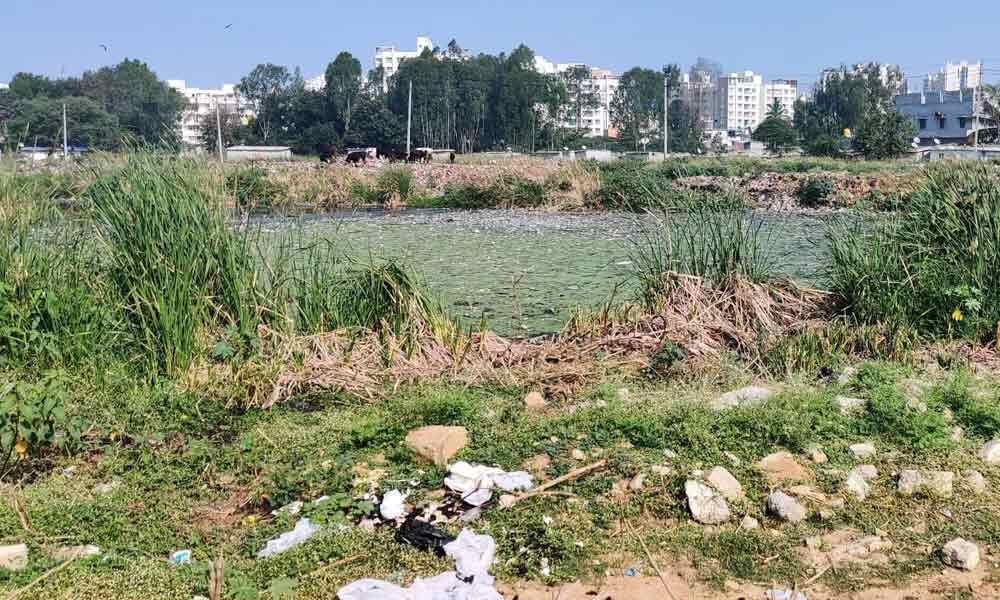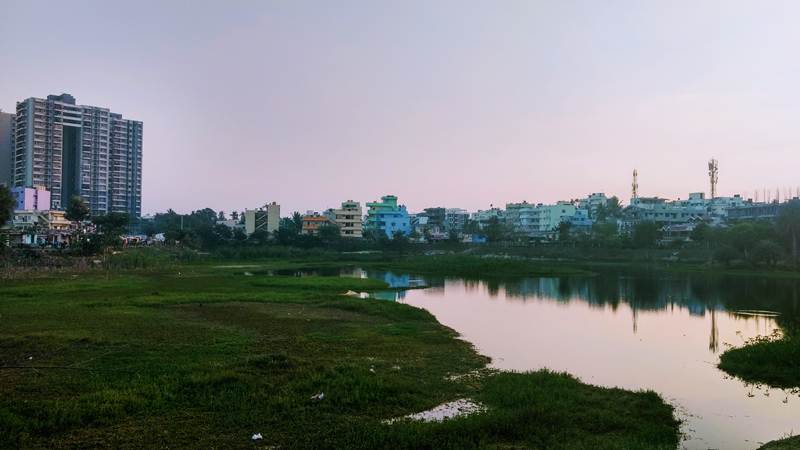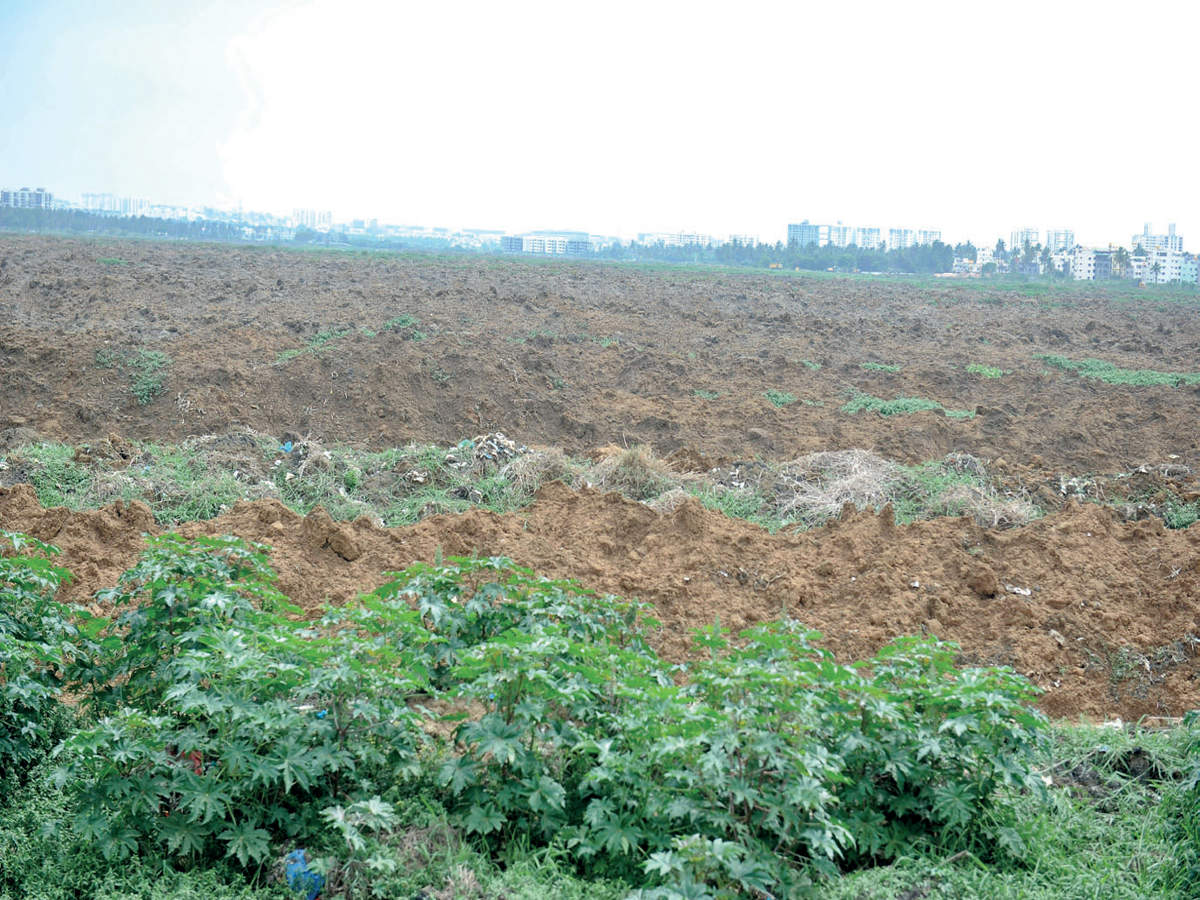A New Chapter in Decentralised Governance of Lakes of Karnataka: Principal Bench of Karnataka High Court directs the State to constitute District Lake Protection Committees in Environment Support Group v. State of Karnataka (WP No. 817 of 2008)
Press Release : 15 June 2021 – Bangalore
Principal Bench of Karnataka High Court directs the State to constitute District Lake Protection Committees in Environment Support Group v. State of Karnataka (WP No. 817 of 2008)
On 15 June 2021, the Principal Bench of the Karnataka High Court headed by Chief Justice Abhay Oka pronounced an order that will significantly change lake governance across Karnataka state, in rural and urban areas. This order will now pave the way for truly decentralised governance of lakes as commons. The High Court has also shown a willingness to take up the question of allowing the public direct access to these Committees for resolving grievances.
The order was issued in response to an application made by Leo F. Saldanha, Coordinator of Environment Support Group, who sought modifications to the landmark 2012 judgment in ESG’s Lakes PIL Environment Support Group v. State of Karnataka (W.P. No. 817/2008), to strengthen lake governance from the ground up.
Background
The ESG Lakes PIL was heard for several years after it was filed in 2008. The final judgment was delivered on 11 April 2012 directing the State of Karnataka to ensure that local communities were involved in lake rehabilitation and management and that their regulation was devolved to lake protection committees constituted for major urban areas (corporations and councils), to be supervised by an Apex Committee. The Court also constituted a committee under the then sitting Judge of the Court, Justice Mr. N.K. Patil. This Committee submitted two reports based on inputs and participation of the highest-ranking officials of 8 agencies of the State directly involved in lake protection and management, the Commissioner of Bruhat Bengaluru Mahanagara Palike, and ESG, amongst others. The first report provided detailed guidelines for lake protection, management and rehabilitation and the second strongly discouraged privatisation of lake management.
One year on, the State Government, its agencies and civic bodies had failed to implement these guidelines and rehabilitate lakes and rajakaluves (canals that interconnect lakes) based on participatory processes, traditional wisdom and scientific understanding of freshwater ecosystems. Instead, the State preferred to centralise control over lakes. ESG was compelled to move a contempt petition, and it was only then that Lake Protection Committees were established for City Councils and Corporations. A major outcome was the enactment of the Karnataka Tank Conservation and Development Authority and Certain Other Law (Amendment) Act, 2018.
Karnataka has about 40,000 lakes now; which means it has lost at least 10,000 lakes in recent decades. The 2012 order did not cover lakes in rural areas. Besides, the governance of lakes remained centralised and beyond the reach of local communities. As a consequence, lakes continued to be encroached, polluted and destroyed. The Lake Protection Committees for urban areas remained on paper, and the Apex Committee at the State level meant to address people’s grievances failed to function as desired by the Karnataka High Court.
Renewed Attention to the Lake Governance Question
A PIL filed in the Karnataka High Court by Citizens Action Group (CAG) in 2014 (W.P. No. 38401/2014) brought back attention to the manner in which lakes were being neglected, and especially in not attending to the revival of rajakaluves of lakes. ESG and Leo Saldanha impleaded in this PIL in 2019 and brought to the Court’s attention various inconsistencies in the approach of the State and civic and regulatory agencies. The Principal Bench’s attention was also invited to various threats to the future of lakes, to their biodiversity, and thus to water and ecological security across the State.
It became apparent then that if lakes had to be protected and rehabilitated sensibly, it could only be done with the direct involvement of local people in all aspects of its governance. Leo Saldanha moved an application seeking amendment of the 2012 order, which was admitted by the Principal Bench. In response to the Court’s directions, ESG made detailed submissions proposing changes to existing lake governance frameworks, particularly those that had come into force as an outcome of the 2012 order, and followed it with a summary of its proposals.
Accepting the need for such reform, Chief Justice Oka had observed that the order in ESG’s Lakes PIL (W.P. No. 817/2008) had to be recalled and amended to build into it details of public involvement in lake management and rehabilitation, and for decentralisation of their regulation and governance. The order issued today is an outcome of this process.
The Modification Order in the Lakes PIL: A Step to Revitalise Lake Protection and Rehabilitation with Public Involvement
In its 15 June 2021 order, the High Court has taken note of the absence of District-level Lake Protection committees in the 2012 direction, and now directed the constitution of such committees in all districts of Karnataka. The Court opined that such committees are essential to supervise the implementation of the directions of the 2012 judgement and also the orders in the CAG PIL (W.P. No. 38401/2014) being heard now. The district committees will have jurisdiction over all lakes and other water bodies in the entire district, except those that are within Municipal Corporation and Municipal Council areas, which will be governed by specific committees. The nature of the constitution of these committees is mentioned in the Addendum.
The Court observed in its order that it is “inappropriate to make extensive modifications” to the 2012 judgement. However, liberty was granted to Mr. Saldanha to suggest the engagement of experts as special invitees to meetings of the committees, and to seek open hearings of these committees for considering citizens’ grievances.
Unprecedented Decentralisation of Governance of Commons
This ruling has expanded the scope of the prevailing order in ESG’s Lakes PIL and brought true public involvement in lake management and rehabilitation, and in regulation against their pollution – a substantive leap forward in the governance of lakes as commons. The constitution of the district-level committees ensures that the onus of governance of 40,000 lakes across Karnataka has now shifted to the local bodies that are custodians of these water bodies. By also keeping the door open for expert involvement in the district-level committees and for open hearing of grievances, this order now paves the way for public involvement in decision making relating to lakes, and for the democratisation of governance of commons across Karnataka. This order is likely to influence similar reforms in the governance of commons across the country.
This judgment underscores the importance of what Prof. Elinor Ostrom said over a decade ago about ESG’s lake conservation efforts. In a letter written to the Secretariat of the United Nations Office to Support the International Decade for Action “Water for Life” 2005-2015, Prof. Ostrom had observed that the orders in ESG’s Lakes PIL acknowledge the critical importance of “community centered, democratic, and ecologically viable interventions for managing watersheds and water resources”. In what was to be one of her last letters before her demise, Prof. Ostrom had hailed the order as an “important step towards securing public commons”, that could “go a long way in extending water and food security to millions who are in critical need of the same.” The High Court’s latest order further advances its commitment to such objectives, based on the Principle of Intergenerational Equity and the Public Trust Doctrine.
Malvika Kaushik and Sana Huque
Environment Support Group
Addendum
Constitution of District-Level Committees
i) The Deputy Commissioner of the district as the Chairperson,
ii) The Chief Executive Officer of Zilla Panchayat – member,
iii) Higher Officer of appropriate level working in the Forest department – member,
iv) Higher Officer of appropriate level working in the minor irrigation department – member,
v) Higher Officer of appropriate level working in the environment department/Karnataka State Pollution Control Board – member, and
vi) The Member Secretary of the District Legal Services Authority shall be the Secretary of the said Committee.
(The officers at serial numbers (iii) to (v) shall be nominated by the State Government. The High Court also directed that instead of the Deputy Commissioner of the district, the jurisdictional Assistant Commissioner shall be the member of the Committees constituted for the Municipal Corporations and other Municipal areas, which were already directed to be constituted in the final judgment and order of 2012.)
Press Coverage

Karnataka High Court orders formation of district level lake protection committtes – The Hans India

State told to set up district-level panels for lake maintenance – The Hindu

Karnataka revives dying lakes: Why a decentralised governance was long overdue – DownToEarth

Karnataka High Court directs decentralised governance of lakes in rural and urban areas – Gaonconnection | Your Connection with Rural India – Goan Connection



One thought on “A New Chapter in Decentralised Governance of Lakes of Karnataka: Principal Bench of Karnataka High Court directs the State to constitute District Lake Protection Committees in Environment Support Group v. State of Karnataka (WP No. 817 of 2008)”